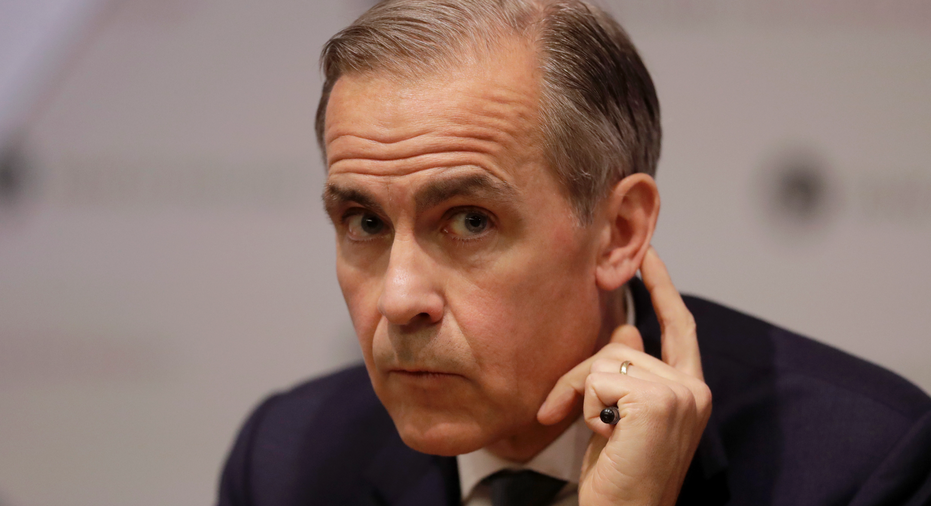UK economy to slow near-term as Brexit preparations halted
Mark Carney the Governor of the Bank of England listens to a journalist's question during an Inflation Report Press Conference at the Bank of England in the City of London, Thursday, May 2, 2019. The British economy is likely to weaken in the near-term as firms ease up on Brexit preparations now that Britain’s Brexit departure from the European Union has been delayed by months, the Bank of England said Thursday. (AP Photo/Matt Dunham, Pool)
LONDON – The British economy will weaken in the near-term as firms ease up on Brexit preparations now that the country's departure from the European Union has been delayed by months, the Bank of England said Thursday.
In its quarterly forecasts, the central bank said stock-building by companies had helped first quarter economic growth rise to a quarterly rate of about 0.5%. That's more than double the previous projection of 0.2% made in February and largely due to Brexit-related stock building. Official figures are due next week.
"Concerned about disruptions to trade given the potential March 29 cliff edge, companies on both sides of the Channel brought forward production, pushing U.K. goods imports and exports with the EU to decade highs in the three months to February despite the doldrums in both economies," Governor Mark Carney said after the bank decided to keep its main interest rate at 0.75%.
Ahead of Britain's scheduled departure from the EU on March 29, firms prepared for the possibility that the country might leave the bloc without a deal, which could have delayed and added to the costs of imports, for example. Since then, Britain has been granted an extension to its departure to Oct. 31 after Parliament rejected Prime Minister Theresa May's Brexit withdrawal deal with the EU on three occasions.
Growth is forecast to dip to 0.2% in the second quarter as the stock-building plans are parked.
Beyond that, the economy should be in a position to recover again due to a more benign global backdrop, partly linked to expectations that interest rates in major economies will not be as high as previously expected and an easing in trade tensions between the United States and China. The Bank of England raised its 2019 growth forecast to 1.5% from 1.2%.
Unemployment is expected to fall to 3.5% by 2022, which would be the U.K.'s lowest rate since 1973.
The bank is also predicting inflation will pick up this year to slightly above the 2% target, a development that would require interest rates to rise.
Carney, who will leave his post in January, cautioned that investors may be underestimating the scale of future interest rate rises, though he insisted any hikes would be gradual and "limited."
The governor was at pains to stress that the forecasts are conditioned on Britain exiting the EU in a "smooth" manner and with a transition period to a new trading relationship. Under May's deal, Britain has until the end of 2020 to adapt to new relations, which will involve the country remaining in the tariff-free EU single market and customs union.
Carney said it would be unwise to rule out the prospect of Britain crashing out of the EU without an agreement. According to the Bank of England, two thirds of firms said they were as prepared as possible for a "no-deal" Brexit, a scenario that they on average think would cut 3.5% from their output.
"It remains the case that companies are only as ready as they can be, and they expect a market decline in the rate of growth, investment and employment in the event of a hard Brexit," Carney said.
As a result, uncertainty over Brexit will cause business investment, which has been falling for over a year, to drop in coming quarters, too. That, according Carney said, "would mark the longest run of falling investment in the post-war era."





















